Ron DeSantis will send over 250 additional troops – and a fleet of planes and boats – to ‘protect’ Florida from vessels carrying Haitian asylum seekers.
The conservative governor issued the edict on Wednesday as unrest in the Caribbean country continued for a second week.
The deployment will include 48 National Guardsmen as well as four helicopters that will add to an already bustling line of defense along the state’s southern coast.
Another 39 officers from the Florida Department of Law Enforcement, 30 from the Florida Highway Patrol and 23 from the Florida Fish and Wildlife Conservation Commission will also join the front, as well as a litany of planes and drones and eight boats.
The details of the deployment were provided by DeSantis’ office shortly after the failed GOP candidate went to X to announce the operation. Days before, the US deployed Marines to protect the US Embassy in Haiti as gang violence seeps across the country.
Scroll down for video:
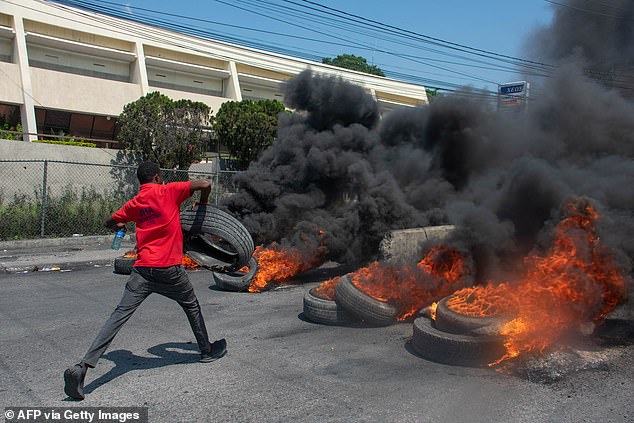
Ron DeSantis will send over 250 additional troops – and a fleet of planes and boats – to ‘protect’ Florida from vessels carrying Haitian asylum seekers as unrest continues across the country
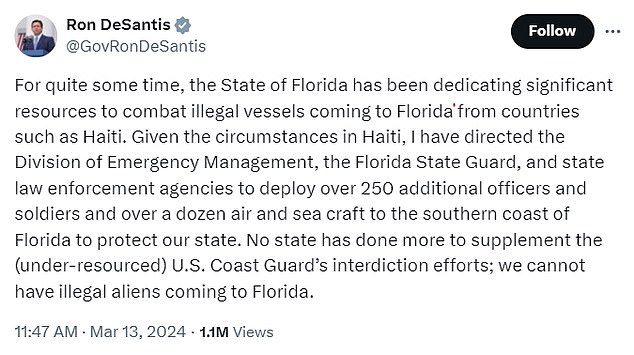

The details of the deployment were detailed by DeSantis’ office after the failed GOP candidate went to X to announce the operation. It will consist of 48 National Guardsmen and four helicopters
DeSantis, 45, continued to outline his decision Wednesday morning, citing how his state — prior to the current situation — had already done much to prevent Haitians from entering illegally.
“For quite some time, the state of Florida has devoted significant resources to combating illegal vessels coming into Florida from countries like Haiti,” DeSantis said, obliquely mentioning countries like Cuba, the Dominican Republic and Jamaica.
“Given the circumstances in Haiti,” he continued, “I have directed the Department of Emergency Management, the Florida State Guard and state law enforcement agencies to deploy over 250 additional officers and soldiers and over a dozen air and naval vessels to the South Florida coast. ‘
The decision, he said, was taken ‘to protect our state’.
The outspoken Republican went on to insist how ‘no other state has done more to complement the US Coast Guard’s interdiction efforts’, calling the current line of defense ‘under-resourced’.
He bracketed the latter claim, a week after the US Coast Guard repatriated 65 Haitian asylum seekers after their vessel was spotted in distress.
“We cannot have illegal aliens coming to Florida,” he concluded.
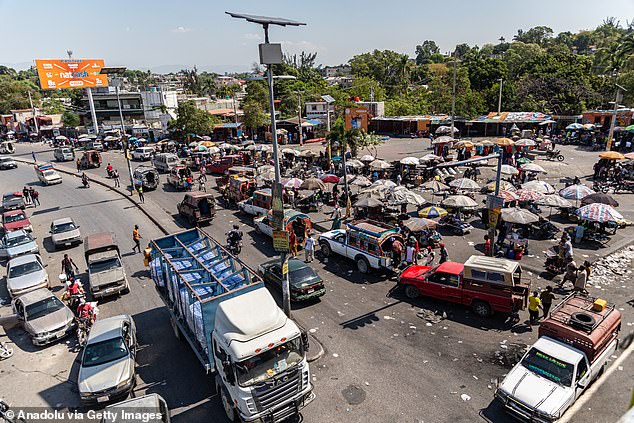

Another 39 officers from the Florida Department of Law Enforcement, 30 from the Florida Highway Patrol and 23 from the Florida Fish and Wildlife Conservation Commission will also participate, as well as aircraft and drones and eight boats. Pictured: Port-au-Prince, Haiti on Monday
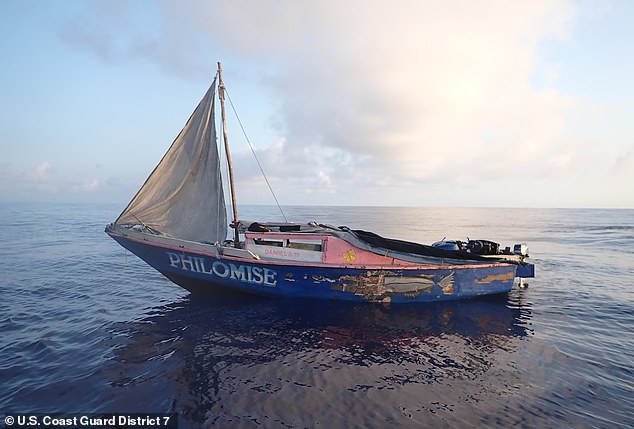

The announcement comes a week after the US Coast Guard repatriated 65 Haitian asylum seekers after their vessel (pictured) was seen in distress
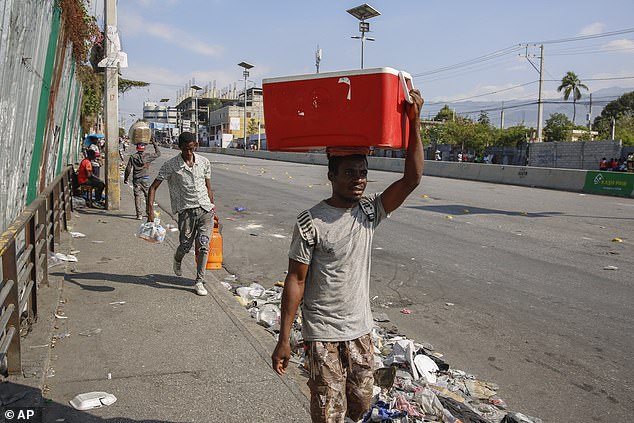

“We cannot have illegal aliens coming to Florida,” DeSantis concluded Wednesday, arguing that current Coast Guard defenses along the state’s southern coast are “under-resourced.” Pictured: Displaced people walk along a street in Port-au-Prince on Tuesday
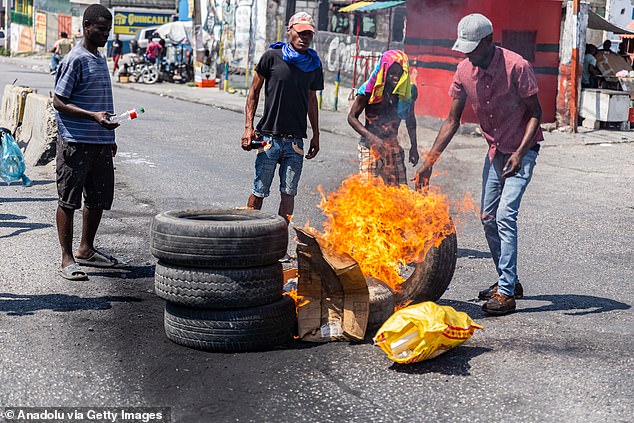

He bracketed the latter claim as countless Haitians caught in the crossfire continue to fight for survival
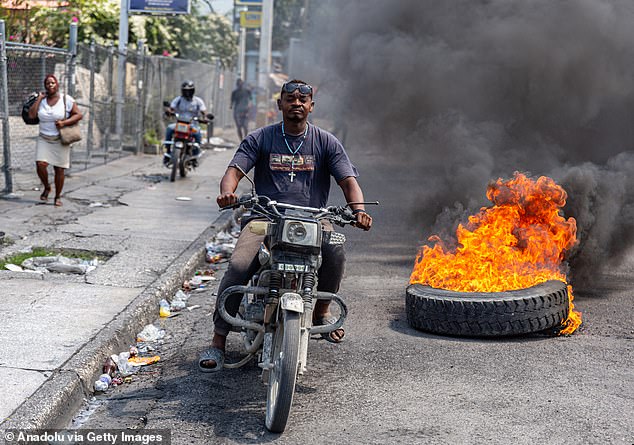

The violence continued on Tuesday even after Haiti’s prime minister stepped down – a request made by the gangs carrying out the violence
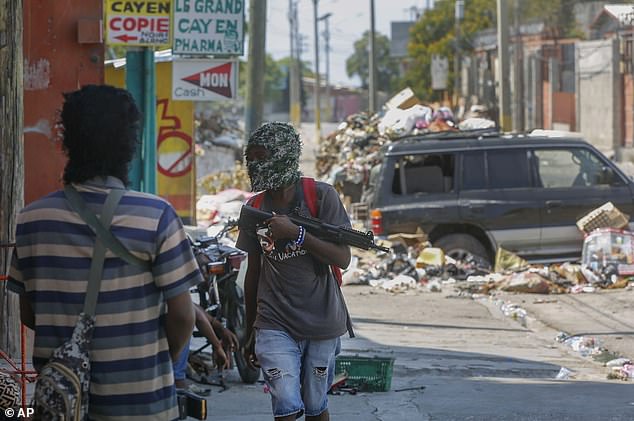

Politicians across the region are still scrambling for a solution as dogs have been seen gnawing on the unaddressed dead and bodies are being burned in the streets.
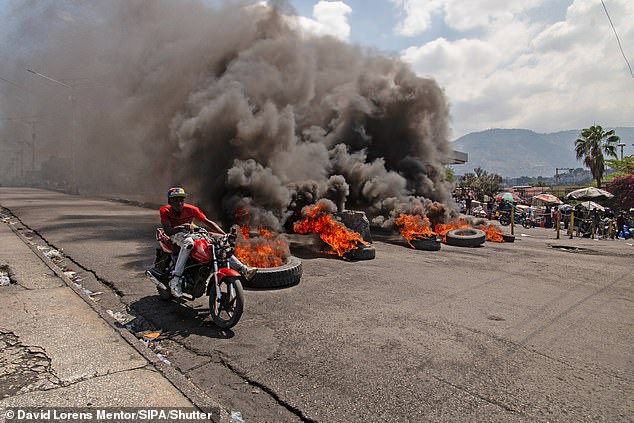

The conservative governor issued the edict on Wednesday as unrest in the Caribbean country continued for a second week
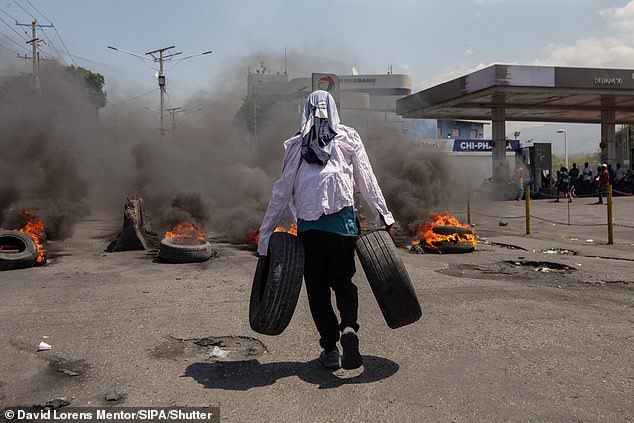

The group had been keen to rally support for a Kenya-led foreign police intervention, which they said would have restored order enough for a new round of elections to be held and kill anyone who stands in their way.
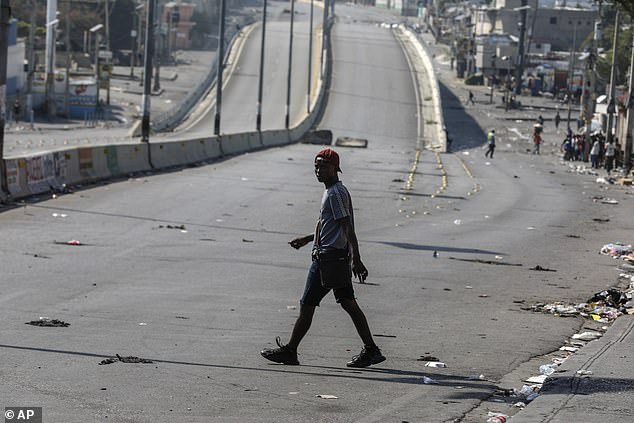

Officials on Monday did not name a replacement for the world leader – saying only that CARICOM is now taking on the task of meeting the ‘immediate needs’ of the Haitian people
The announcement came less than a day after Haitian Prime Minister Ariel Henry was forced to resign following an emergency summit called to address the gang-led violence currently taking place in the country.
The 74-year-old head of state offered his resignation a week after the growing coalition of gangs warned of civil war if he did not step down.
His resignation was quickly confirmed by Guyana’s President Mohamed Irfaan Ali, the current chairman of the Caribbean Community (CARICOM).
The coalition called the emergency meeting as gangs across the Caribbean country continue to unite, targeting government buildings and foreign embassies – killing many innocents caught in the crossfire.
As a result, thousands have fled their homes and locals continue to report the overwhelming stench of the dead. Meanwhile, ppoliticians across the region are scrambling for a solution – one that may now be in sight after Henry’s removal.
“We recognize his resignation after the establishment of a transitional presidential council and the naming of an interim prime minister,” Ali said, thanking Henry – who came to power unelected after the assassination of Haiti’s former president – for his service.
The decision, said to have been made on Friday, came shortly before the US deployed marines to evacuate its embassy as gangs led by former police officer Jimmy ‘Barbecue’ Cherizier continue to attack government institutions.
Henry is currently unable to return home, stranded in Puerto Rico since Tuesday after officials deemed it too unsafe for him to land in the neighboring Dominican Republic.
On Saturday, Dominican President Luis Abinader’s office issued a statement explaining that decision — saying, “Henry is not welcome in the Dominican Republic for security reasons.”
That decision came shortly after another that saw the Caribbean nation close its land border with its embattled neighbor, seemingly leaving the other side of Hispaniola to its fate.

